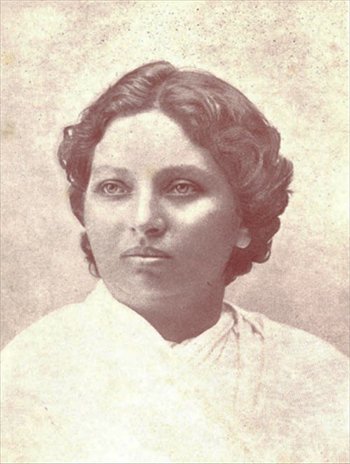Pandita Ramabai – 1858-1922
by David Smithers

Pandita Ramabai
Fire kindles more fire. In 1904 one of the most significant revivals of the modern Church age swept through Wales. News of the Welsh revival quickly encircled the globe, bringing with it sparks of hope and expectation. Soon revival fires were burning in India, China, Korea and America. Instrumental in the revival in India was a young woman by the name of Pandita Ramabai.
Pandita Ramabai and Revival at the Mukti Mission
Pandita established a center for young widows and orphans called “Mukti” meaning – salvation or deliverance. She longed to see a powerful revival among the neglected and helpless widows of India. In December 1904, after receiving word of the Welsh revival, her hunger for an outpouring of the Spirit intensified, “she started prayer circles of ten girls each, urging them to pray for the salvation of all nominal Christians in India and across the world. At first there were seventy in her prayer circles. She sent out a call for other prayer circles to be formed among friends and supporters, giving each a list of ten unsaved girls or women for whom to pray. Within six months there were 550 at Mukti who met twice a day to pray for revival.” On June 29, 1905 the Spirit fell upon a large group of girls, with weeping, confession of sin and prayers for empowerment. The next day, June 30, while Ramabai taught from John 8, the Spirit came in power. All the women and girls began to weep and confess their sins. Many were stricken down under conviction of sin while attending to their daily studies and household duties.
Lessons were suspended and the women gave themselves to continual prayer. During these days of heart-searching repentance many girls had visions of the “body of sin” within themselves. They testified that the Holy Spirit came into them with holy burning, which they called a baptism of fire, that was almost unbearable.
Revival Manifestations
Another reporter of these revival incidents stated, “the girls in India so wonderfully wrought upon and baptized with the Spirit, began by terrifically beating themselves, under pungent conviction of their need. Great light was given them. When delivered they jumped up and down for joy for hours without fatigue. They cried out with the burning that came into and upon them, while the fire of God burned the members of the body of sin, pride, anger, love of the world, selfishness, uncleanness, etc. They neither ate nor slept until the victory was won. Then the joy was so great that for two or three days after receiving the baptism of the Holy Spirit they did not care for food.” In such times of true revival the most basic dealings of the Holy Spirit suddenly became powerfully intensified. Both the conviction of sin and the joy of salvation are seemingly greatly exaggerated.
Noted Evangelical Observers
little girls were lost for hours in the transport of loving Jesus and praising Him. Young Christians were counting it a rare privilege to spend many successive hours in intercessory prayer for strangers never seen or known
G. H. Lang after spending some time at Mukti observing the revival wrote, “little girls were lost for hours in the transport of loving Jesus and praising Him. Young Christians were counting it a rare privilege to spend many successive hours in intercessory prayer for strangers never seen or known . . . In one meeting we were seventeen hours together; the following day more than fifteen hours passed before the meeting broke up with great joy.” “Dr. Nicol MacNicol, the scholarly biographer of Pandita Ramabai reported that these who seemed to have such emotional blessings at the time of the revival were still living steadfast, godly lives twenty years later.”
The life of Pandita Ramabai is a strong encouragement for us to apply ourselves diligently to the word of hope. This precious young woman armed only with a God given vision and the news of Christ’s fresh work in Wales took heart and set herself to pray like never before. In light of what God has done in the past for His Church have we not reason to hope? The Church is too often hopeless and prayerless because it has forgotten God’s mighty acts. “Seek the LORD and His strength, seek His face continually. Remember His marvelous works which He has done, His wonders, and the judgments of His mouth; . . .” (1 Chron. 16:11,12).
References Used: Pandita Ramabai: The Story of Her Life by H. S. Dyer, The Flaming Tongue by J. Edwin Orr.
Revival Fire by Wesley Duewel
© David Smithers



